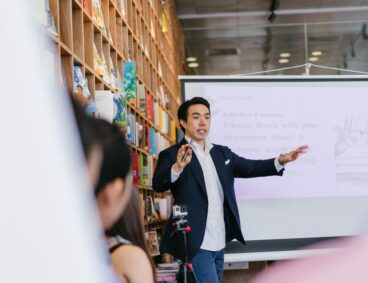
Academic exchange
ERASMUS+ PROGRAMME
Erasmus+ is the education, training, youth and sports program of the European Union, which promotes cross-border and international cooperation between educational institutions and other organizations in Europe and other countries of the world, supports the mobility of people of different ages, contributing to the personal and professional development of citizens.
Erasmus+ has been one of the most striking examples of the European Union’s success for more than 35 years. The aim of Erasmus+ is to promote learning mobility of individuals and groups, as well as cooperation, quality, inclusion and equal opportunities, excellence, creativity and innovation in education and training organizations and policies.
Erasmus+ aims to contribute to the sustainable growth of the European economy, the creation of quality jobs, social cohesion, the promotion of innovation and the strengthening of European identity and active citizenship.
Erasmus+ priorities
Incusion and diversity. Promote equal opportunities and increase accessibility, inclusion and diversity of participants with fewer opportunities. The aim is to help overcome the barriers that different target groups may face to take advantage of opportunities in Europe and beyond: disability, health problems, learning difficulties, cultural differences, geographical, social and economic barriers.
Digital transformation. It aims to harness the potential of digital technologies in teaching and learning and to universally develop the digital skills and literacy that have become a necessity in everyday life. Information communication and technology tools provide opportunities to combine physical mobility with virtual learning and collaboration and help to reach a larger target group both within and outside the Union.
Environment and fight against climate change. The “European Green Deal” is the new growth strategy for Europe, which aims to make Europe would successfully become a climate-neutral continent. Erasmus+, with mobility at its core, encourages the participants of mobility projects to save resources, reduce energy consumption, and reduce the impact of carbon dioxide by choosing environmentally friendly means of mobility.
Participation in democratic life, shared values and civic engagement. The aim is to increase citizens’ understanding of the European Union, common values, principles of unity and diversity, active citizenship, develop social and intercultural skills, critical thinking and the ability to use media.
Erasmus+ participating countries
1. Program countries: EU Member States,Third countries associated to the Programme (European Economic Area (EEA) members: Norway, Iceland and Liechtenstein), EU acceding countries, candidate countries and potential candidates (North Macedonia, Turkey and Serbia).
2. Partner countries: Third countries not associated to the Programme. Other countries of the world, grouped by 14 world regions.
Mobility activities of persons in higher education supported by Erasmus+:
• student mobility for studies
• mobility of students for educational practice (internship)
• staff mobility for teaching
• staff mobility for training
• blended intensive programmes (short-term mobility programmes that combine physical mobility and a virtual learning component)
Erasmus+ programme at LSMU
Erasmus+ and other academic mobility activities at LSMU are administered by the Division of Academic Mobility (AJS) of the International Relations and Study Centre.
The AJS division:
• Plans, prepares and submits applications for financing Erasmus+ projects, prepares project reports
• Coordinates (initiates, prepares, signs) Erasmus+ inter-institutional cooperation agreements with foreign higher education institutions
• Prepares procedures and regulations related to the organization of activities of academic mobility programmes
• Organizes and conducts selections of mobility participants, advises and provides comprehensive assistance to mobility participants at all stages of mobility
• Administers documents of mobility participants, allocates mobility grants, coordinates the recognition process of mobility activities
• Informs the LSMU academic community about the possibilities of Erasmus+ and other exchange programmes, disseminates information about program activities and results
• Organizes informational events for LSMU students and staff, international training weeks, integration and cultural activities for incoming mobility participants.


